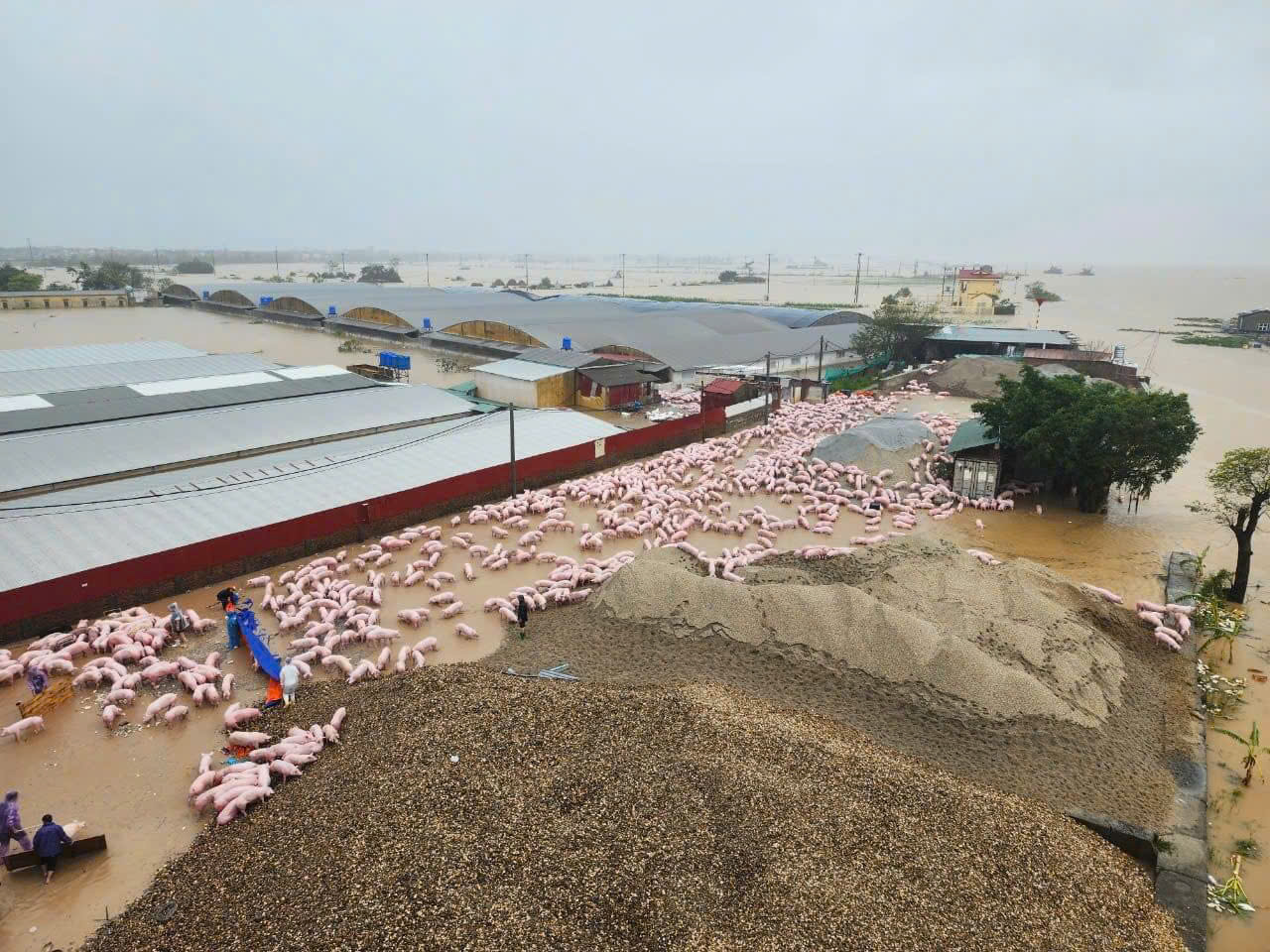The Ministry of Agriculture and Rural Development has issued Official Dispatch No. 6641/BNN-TY on proactive prevention and control of livestock diseases after rain and floods to the People’s Committees of the following provinces and cities: Quang Ninh, Hai Phong, Thai Binh, Hanoi, Hung Yen, Hai Duong, Bac Ninh, Bac Giang, Vinh Phuc, Phu Tho, Lang Son, Ha Giang, Tuyen Quang, Lao Cai, Yen Bai, Hoa Binh, Son La, Lai Chau, Dien Bien, Thai Nguyen, Bac Kan, Cao Bang, Ha Nam, Nam Dinh, Ninh Binh, Thanh Hoa, Nghe An, Ha Tinh.
Recently, the weather in many northern localities has been complicated, heavy rains have caused floods, especially since September 7, 2024, storm No. 3 (also known as storm Yagi) has made landfall in the northern provinces, causing heavy rains, floods and causing serious damage in many localities; the risk of dangerous diseases in livestock and poultry arising and spreading after this rain and flood is very high.
 A animal farm in Bac Ninh province had to evacuate its animals due to rain and floods.
A animal farm in Bac Ninh province had to evacuate its animals due to rain and floods.
To proactively prevent and control cattle diseases and handle the environment after floods, the Ministry of Agriculture and Rural Development (MARD) requests the People’s Committees of provinces and cities to direct relevant departments, branches and local units to urgently implement the following contents:
Organize general cleaning, disinfection and sterilization immediately after the end of the rain and flood to destroy pathogens in the environment.
Instructions for livestock farmers:
– Regularly clean the livestock area and livestock equipment; collect and treat livestock waste to avoid environmental pollution. In case of flooding, move livestock to a higher location; when the water recedes, immediately clean and disinfect the livestock area before returning the livestock to the barn.
– Take care of and improve the resistance of livestock by providing adequate food and nutritional supplements suitable for each livestock species, and supplementing vitamins and minerals necessary for livestock.
Review and organize full vaccination of livestock and poultry according to regulations, especially for livestock and poultry in areas where epidemics have occurred, high-risk areas, flooded areas, etc.
Strengthen monitoring to detect early and promptly handle cases of livestock and poultry infected with or suspected of being infected with dangerous diseases such as African swine fever, avian influenza, foot-and-mouth disease, lumpy skin disease in cattle and buffalo, and blue ear. Instruct livestock owners to immediately report to local authorities and veterinary agencies to investigate and handle outbreaks in accordance with regulations. Do not slaughter, buy or sell sick or dead animals; do not throw dead animals due to disease into the environment.
Advise the government, departments and branches to have plans to support breeding animals, chemicals for environmental treatment, destruction of dead animals, medicines and vaccines to prevent and treat diseases for livestock; At the same time, promptly report to the Ministry of Agriculture and Rural Development (Department of Animal Health) difficulties, obstacles and chemical support in overcoming the consequences of floods and storms, arising issues related to local veterinary work, especially the work of preventing and controlling animal and poultry diseases in the area, to synthesize and propose to the Government and the Ministry of Agriculture and Rural Development timely support plans.
Establish working groups to go to localities to direct, urge and guide the implementation of disease prevention and control for livestock and environmental treatment after floods. The Ministry of Agriculture and Rural Development requests that the Chairman of the People’s Committee of the province or city pay attention to directing the implementation of the above contents and notify the Ministry of Agriculture and Rural Development of arising issues for timely coordination and handling.
P.V
